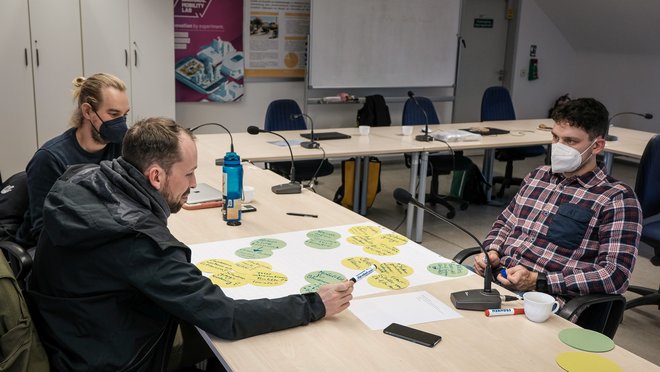
Workshop zum Doppelabschlussprogramm Vilnius-Weimar
Gemeinsam mit der Universität Vilnius entwickelt die Professur Verkehrssystemplanung derzeit ein Konzept für ein Doppelabschlussprogramm Sustainable Transport Planning. Um dessen Lehrinhalte auch mit den Bedürfnissen der Studierenden abzugleichen, waren Interessierte eingeladen, sich in einem Workshop einzubringen.
















